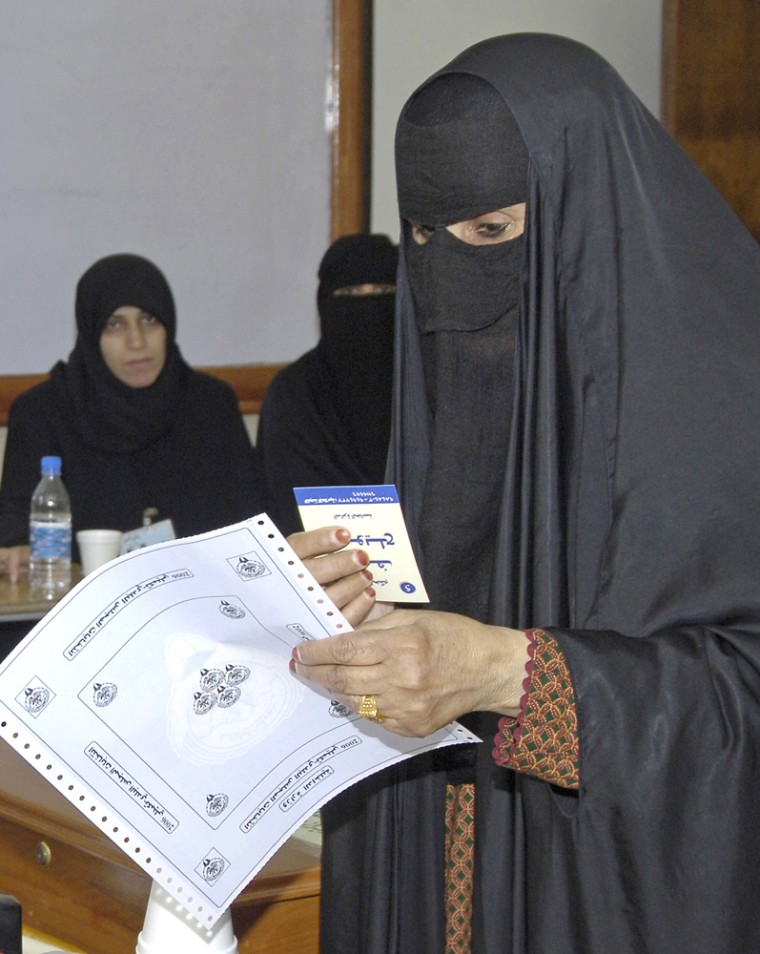Kuwaiti women voted and ran as candidates for the first time Tuesday in a municipal election in the conservative country’s capital, but initial reports indicated not many women were casting ballots.
The vote to fill a seat in the city’s Municipal Council came almost a year after parliament passed a bill enfranchising women and enabling them to run for office. It was seen as a preview of how women might fare in the parliamentary elections due next year in this oil-rich state.
“They have given us some attention. We became equal,” said Iman al-Issa, 28, as she waited to vote outside a polling station’s female entrance. Men and women voted separately to conform with Islamic traditions.
The voting was organized so that a woman could vote without speaking to a man except for the judge who checked her name on the register and presented her with a ballot.
Women — most of them covered by a head-to-toe black abaya robe— chatted in small groups, sometimes drinking coffee and eating sweets, in the segregated section of the polling stations.
Disappointed by female turnout
Judge Fawzi al-Wheib, a supervisor at a polling station, told The Associated Press he was disappointed by the “very light” turnout among women voters.
One of the two women running in the election, Khalida al-Kheder, 48, a U.S.-educated physician and a mother of eight, also expressed disappointment over the low number of female voters. However, she said she expected the turnout to rise substantially in the afternoon when it would be easier for working women to vote.
Women candidates were disadvantaged, both by prejudice and tradition, such as the fact that no female faces adorned the huge electoral posters plastered outside polling stations. It would be considered indecent for a woman candidate to advertise her face.
“No woman will make it,” said Sehim Bin Jameh, 50, a fundamentalist Muslim who sat among a group of men outside a voting center. He declared he would never vote for a female candidate.
Jaber al-Sawwagh, a 32-year-old mechanical engineer who supports political rights for women, said they were in for a tough race.
“It is difficult now, not because (women) are not efficient enough, but because they can’t campaign like men,” he said. He was referring to the tradition of candidates hosting voters in male-only tents and campaigning among “diwaniyahs” — the rooms in houses where men tend to congregate.
Told to stop behaving like a man
A woman who had been visiting diwaniyahs in her campaign for the 2007 parliamentary elections recently received a threatening letter. It told her to stop behaving like a man and abandon the race “before it is too late.”
In May 2005, parliament voted to give women political rights despite strong opposition from Islamists and tribal lawmakers, who argued that women should not mix with men in campaigns. While Shiite Muslim lawmakers see no harm in women participating in politics, hard-line Sunni Muslims, the dominant sect in Kuwait, believe a women’s priority is to take care of her family.
Shortly after the bill was passed, the government appointed one woman to the Cabinet and two others to the Municipal Council, which counts 16 members, breaking the monopoly that men have had on political positions in Kuwait for more than four decades.
